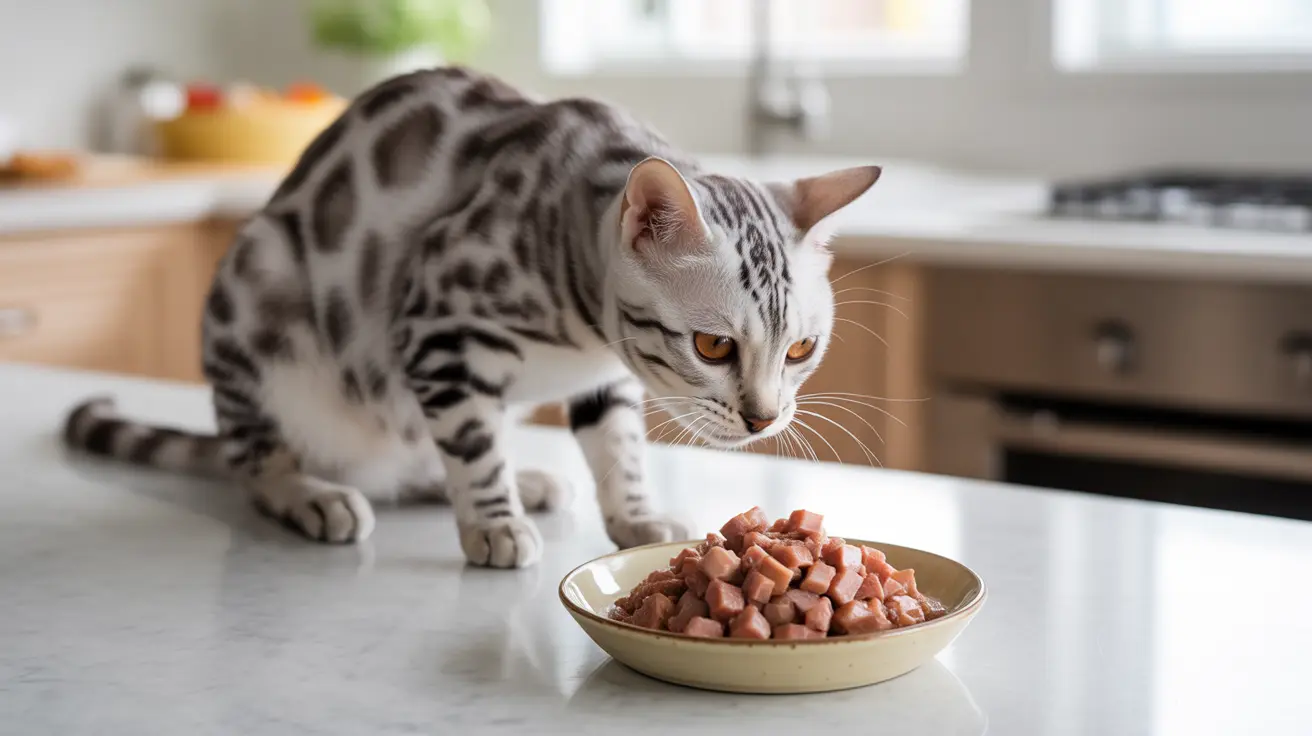If you're considering adding duck to your cat's diet, you'll be pleased to know that duck meat can be a healthy and nutritious option for most felines. As obligate carnivores, cats thrive on high-quality animal proteins, and duck offers a unique nutritional profile that can benefit your pet in several ways.
In this comprehensive guide, we'll explore everything you need to know about feeding duck to your cat, including its nutritional benefits, preparation methods, and important safety considerations.
The Nutritional Benefits of Duck for Cats
Duck meat is packed with essential nutrients that support feline health. It contains approximately 18.3 grams of protein per 100 grams, making it an excellent source of the amino acids cats need for muscle maintenance and overall health.
- High-quality protein for muscle maintenance
- Essential B vitamins, particularly B6 and B12
- Rich in minerals like zinc, iron, and phosphorus
- Contains beneficial omega-3 and omega-6 fatty acids
- Natural source of selenium for immune support
How to Safely Prepare Duck for Your Cat
Proper preparation is crucial when feeding duck to your cat. Follow these essential guidelines to ensure safety:
Cooking Methods
Always cook duck thoroughly to eliminate harmful bacteria. Choose simple preparation methods such as:
- Boiling without seasonings
- Baking without oils or spices
- Gentle pan-cooking with no additives
Safety Precautions
- Remove all bones before serving
- Trim excess fat and remove skin
- Cut meat into small, manageable pieces
- Avoid all seasonings, including salt and garlic
- Never serve raw duck due to bacterial risks
Duck as a Novel Protein Source
Duck meat serves as an excellent novel protein source, particularly beneficial for cats with food sensitivities or allergies to common proteins like chicken or beef. Many veterinarians recommend duck-based diets for cats requiring limited-ingredient or hypoallergenic food options.
Portion Control and Feeding Guidelines
While duck can be nutritious for cats, proper portioning is essential:
- Limit duck to no more than 10% of daily caloric intake
- Introduce gradually to prevent digestive upset
- Monitor your cat's reaction when first introducing duck
- Consider your cat's weight and activity level when determining portions
Special Considerations and Potential Risks
Be aware of these important factors when feeding duck to your cat:
- Higher fat content may not suit overweight cats
- Some cats may have unexpected allergic reactions
- Commercial duck products may contain unwanted additives
- Regular monitoring for digestive issues is recommended
Frequently Asked Questions
Is it safe for cats to eat duck meat, and what are its nutritional benefits?
Yes, cats can safely eat duck meat when properly prepared. Duck provides high-quality protein, essential B vitamins, minerals, and beneficial fatty acids that support overall feline health.
How do I prepare duck for my cat to ensure it's safe and healthy, including cooking and removing bones?
Cook duck thoroughly without seasonings, remove all bones, trim excess fat, and cut into small pieces. Never serve raw duck, and avoid using oils or spices in preparation.
Can duck be a suitable alternative for cats with food allergies to common meats like chicken or beef?
Yes, duck often serves as an excellent alternative protein source for cats with allergies to common meats, making it a popular choice for limited-ingredient and hypoallergenic diets.
What are the key differences between duck and other protein sources like chicken or turkey for cat nutrition?
Duck typically contains more fat than chicken or turkey but offers comparable protein content. It provides unique nutritional benefits and can be especially valuable as a novel protein source.
How can I include duck in my cat's diet without causing digestive issues or nutritional imbalances?
Introduce duck gradually, limit it to 10% of daily caloric intake, and monitor your cat for any adverse reactions. Always serve as part of a balanced diet rather than as the sole protein source.
Remember to consult with your veterinarian before making significant changes to your cat's diet, especially if your pet has existing health conditions or dietary restrictions.






